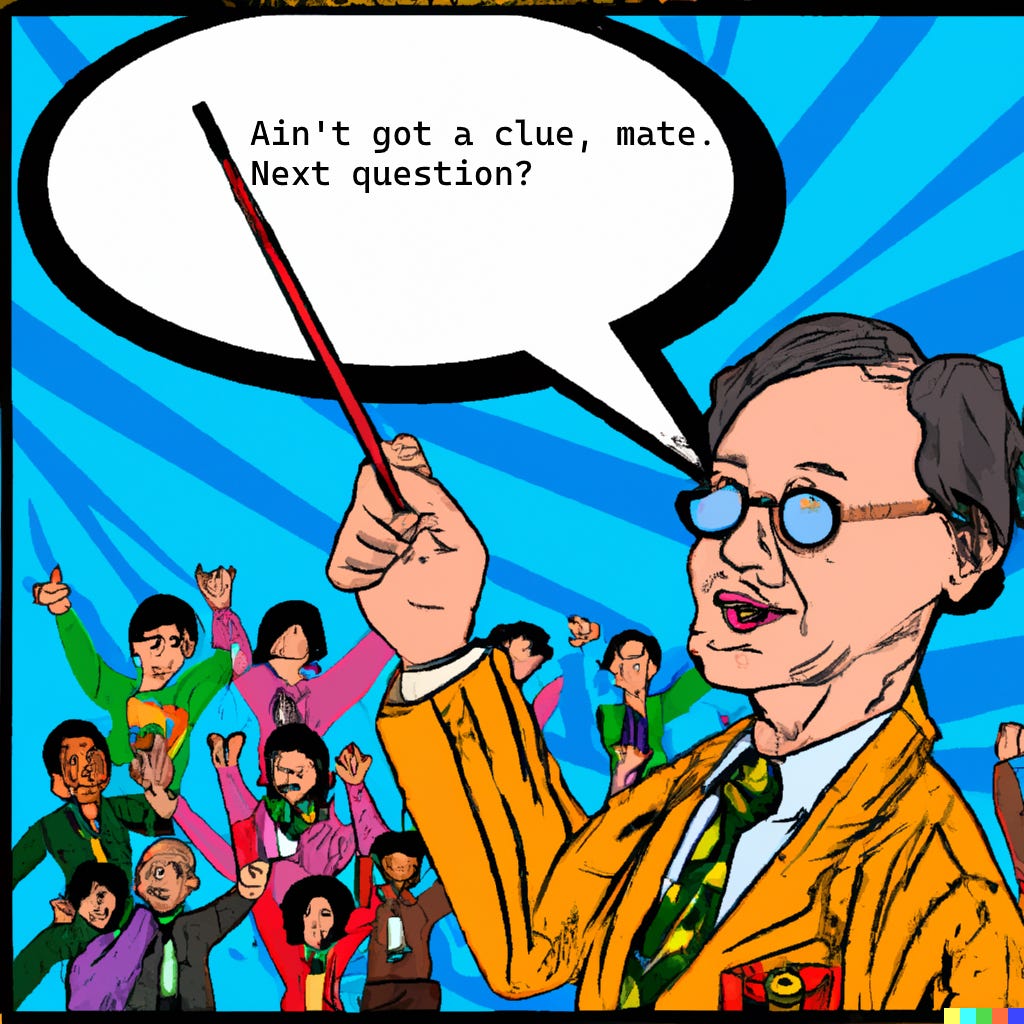This is an article about education rather than reading, writing or life in general. If you don’t wish to receive articles in the education category in future, check out this article to find out how to switch them off:
As a teacher, you’re meant to be the fount of all knowledge, right? Even if your teaching…
Keep reading with a 7-day free trial
Subscribe to Eclecticism: Reflections on literature, writing and life to keep reading this post and get 7 days of free access to the full post archives.



